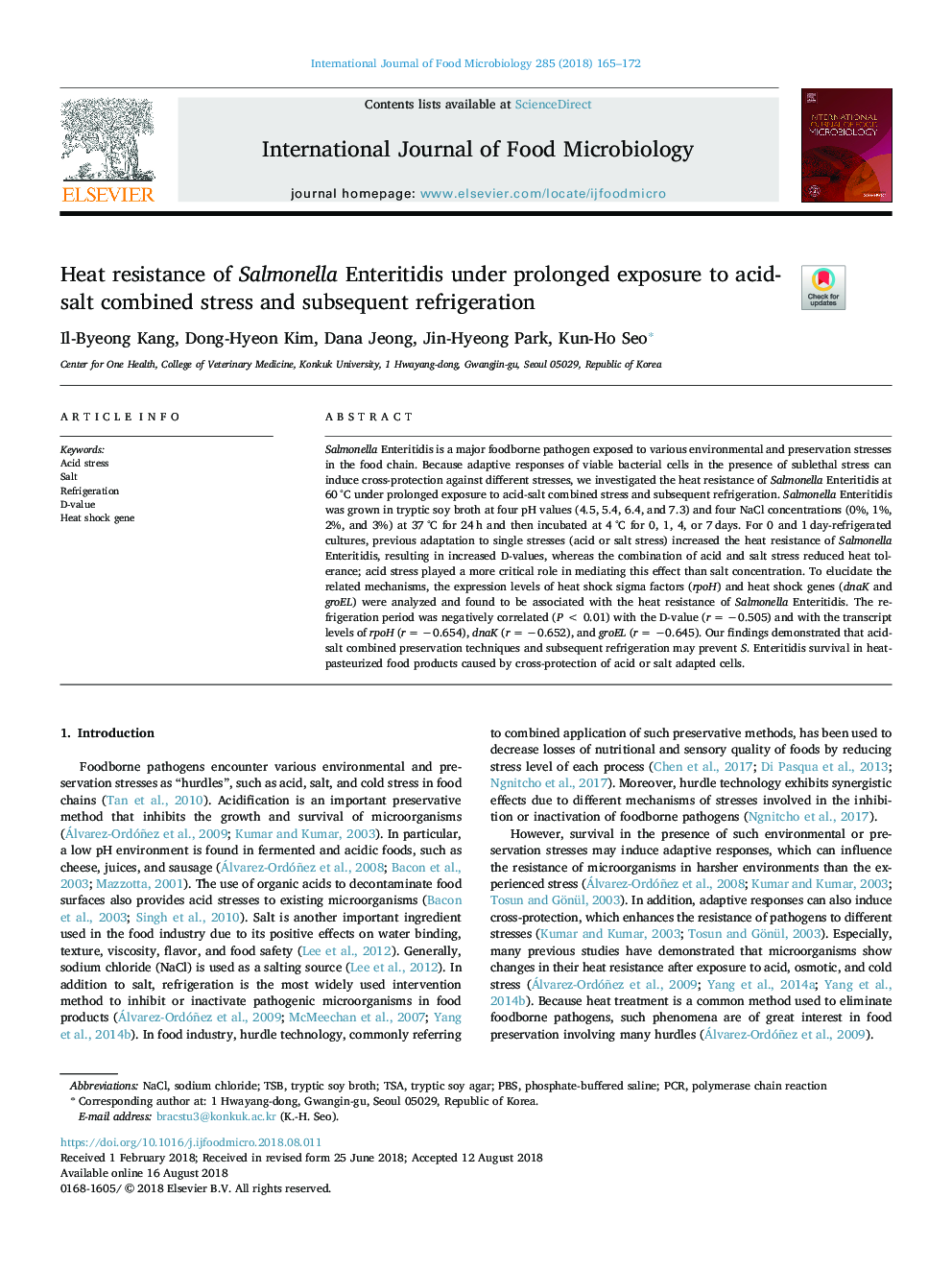| Article ID | Journal | Published Year | Pages | File Type |
|---|---|---|---|---|
| 10107132 | International Journal of Food Microbiology | 2018 | 8 Pages |
Abstract
Salmonella Enteritidis is a major foodborne pathogen exposed to various environmental and preservation stresses in the food chain. Because adaptive responses of viable bacterial cells in the presence of sublethal stress can induce cross-protection against different stresses, we investigated the heat resistance of Salmonella Enteritidis at 60â¯Â°C under prolonged exposure to acid-salt combined stress and subsequent refrigeration. Salmonella Enteritidis was grown in tryptic soy broth at four pH values (4.5, 5.4, 6.4, and 7.3) and four NaCl concentrations (0%, 1%, 2%, and 3%) at 37â¯Â°C for 24â¯h and then incubated at 4â¯Â°C for 0, 1, 4, or 7â¯days. For 0 and 1â¯day-refrigerated cultures, previous adaptation to single stresses (acid or salt stress) increased the heat resistance of Salmonella Enteritidis, resulting in increased D-values, whereas the combination of acid and salt stress reduced heat tolerance; acid stress played a more critical role in mediating this effect than salt concentration. To elucidate the related mechanisms, the expression levels of heat shock sigma factors (rpoH) and heat shock genes (dnaK and groEL) were analyzed and found to be associated with the heat resistance of Salmonella Enteritidis. The refrigeration period was negatively correlated (Pâ¯<â¯0.01) with the D-value (râ¯=â¯â0.505) and with the transcript levels of rpoH (râ¯=â¯â0.654), dnaK (râ¯=â¯â0.652), and groEL (râ¯=â¯â0.645). Our findings demonstrated that acid-salt combined preservation techniques and subsequent refrigeration may prevent S. Enteritidis survival in heat-pasteurized food products caused by cross-protection of acid or salt adapted cells.
Keywords
Related Topics
Life Sciences
Agricultural and Biological Sciences
Food Science
Authors
Il-Byeong Kang, Dong-Hyeon Kim, Dana Jeong, Jin-Hyeong Park, Kun-Ho Seo,
